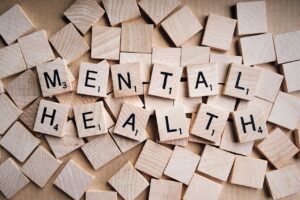Combining therapy, medical intervention, and a supportive environment, dual diagnosis residential treatment centers offer a lifeline to those navigating the complex terrain of mental health challenges coupled with substance abuse issues. In this guide, we will explore the significance of dual diagnosis residential treatment centers and break down their features, benefits, and the critical role they play in fostering lasting recovery.
What Are Dual Diagnosis Residential Treatment Centers?

Dual diagnosis residential treatment centers are specialized facilities designed to cater to individuals grappling with both mental health disorders and substance abuse issues concurrently. Unlike traditional rehab centers that might focus solely on addiction treatment, dual diagnosis centers adopt an integrated approach, addressing the interconnected nature of mental health and addiction. They provide a structured environment where residents receive comprehensive care under the guidance of trained professionals, including therapists, psychiatrists, and medical staff.
What to Expect in Dual Diagnosis Rehab
Here are some of the key features you can expect when entering a dual diagnosis treatment facility.
- Integrated treatment programs. These centers offer tailored treatment programs that address both substance use disorder and other mental health conditions simultaneously. From individual therapy sessions to group counseling and medication management, the treatment plans are comprehensive and personalized to meet the unique needs of each resident.
- 24/7 supervision and support. Residents receive round-the-clock supervision and support from qualified staff members. This ensures immediate assistance in times of crisis and helps individuals navigate the challenges of recovery in a safe and supportive environment.
- Dual diagnosis expertise. The staff at dual diagnosis residential treatment centers are trained to identify and treat co-occurring disorders effectively. They possess expertise in managing complex cases and understand the intricate interplay between mental health and addiction.
- Holistic approach. These centers often adopt a holistic approach to treatment, addressing not only the symptoms but also the underlying factors contributing to mental health struggles and substance abuse. From mindfulness practices to nutritional counseling and recreational activities, the focus is on promoting overall well-being and long-term recovery.
- Aftercare planning. Dual diagnosis residential treatment centers emphasize the importance of aftercare planning to support individuals as they transition back to their everyday lives. This may involve ongoing therapy, support groups, sober living arrangements, and connections to community resources to facilitate sustained recovery.
Why Dual Diagnosis Treatment Works

Now, let’s break down the major benefits of participating in dual diagnosis treatment and how it can support the recovery journey.
- Addressing root causes. Co-occurring disorders often have underlying root causes such as trauma, genetic predispositions, or environmental factors. Dual diagnosis treatment explores these issues, helping individuals understand the triggers behind their mental health struggles and substance abuse.
- Breaking the cycle. Many individuals with co-occurring disorders find themselves trapped in a vicious cycle of self-medication, where substance abuse exacerbates their mental health symptoms. Dual diagnosis treatment breaks this cycle by providing alternative coping mechanisms and addressing underlying mental health concerns.
- Reducing relapse risk. Without proper treatment for both mental health and substance use disorders, the risk of relapse remains high. Dual diagnosis treatment centers equip individuals with the skills and support needed to maintain sobriety and manage their mental health effectively, thereby reducing the likelihood of relapse.
- Improving overall well-being. By addressing both mental health and addiction concurrently, dual diagnosis treatment promotes general wellness and quality of life. Individuals learn to cultivate healthier habits, build meaningful connections, and regain a sense of purpose that outpaces their struggles.
By integrating mental health and addiction treatment within a supportive and structured environment, dual diagnosis residential treatment centers offer a path to lasting recovery and renewed hope. As awareness grows about the interconnected nature of mental health and substance abuse, the importance of this form of treatment continues to gain recognition, paving the way for more improved outcomes in the ongoing journey towards healing and wellness.


